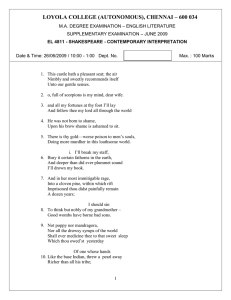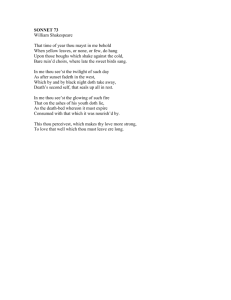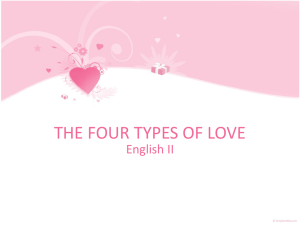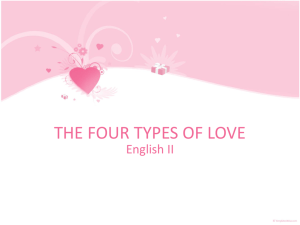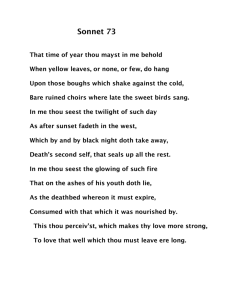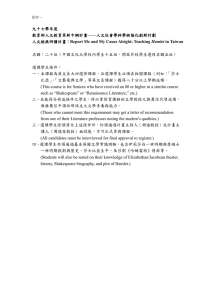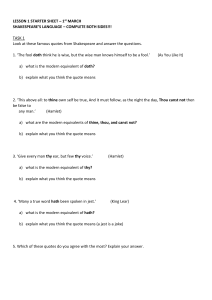In order to read and understand Shakespeare, it is important... English grammar have changed since Shakespeare’s time. Probably the most...
advertisement
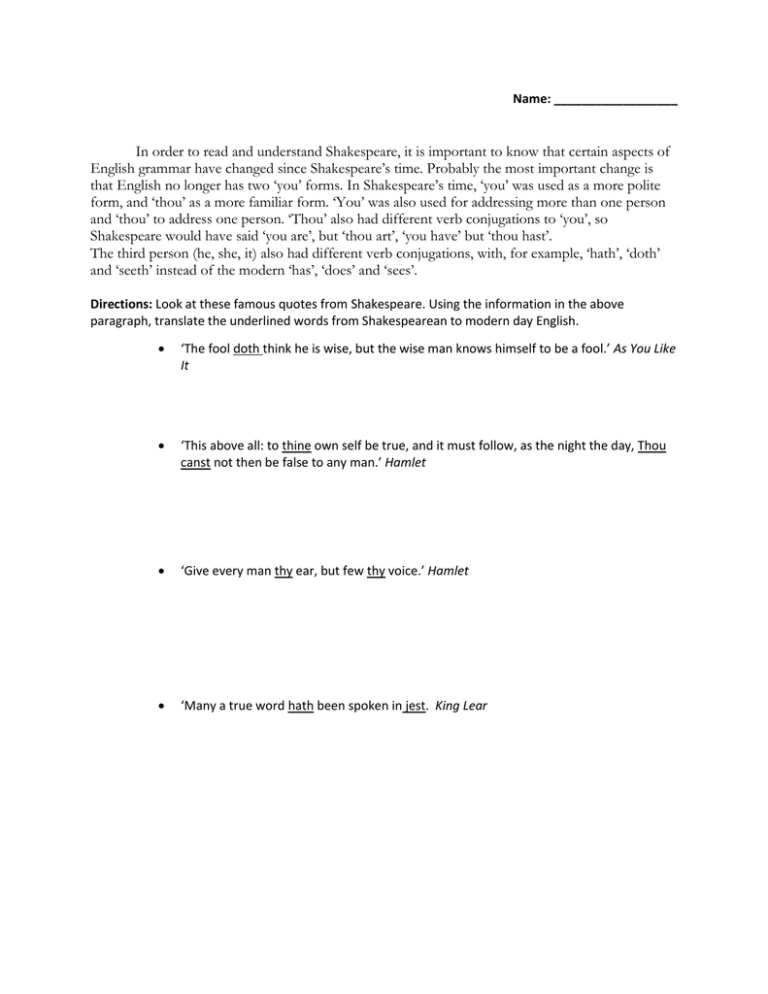
Name: __________________ In order to read and understand Shakespeare, it is important to know that certain aspects of English grammar have changed since Shakespeare’s time. Probably the most important change is that English no longer has two ‘you’ forms. In Shakespeare’s time, ‘you’ was used as a more polite form, and ‘thou’ as a more familiar form. ‘You’ was also used for addressing more than one person and ‘thou’ to address one person. ‘Thou’ also had different verb conjugations to ‘you’, so Shakespeare would have said ‘you are’, but ‘thou art’, ‘you have’ but ‘thou hast’. The third person (he, she, it) also had different verb conjugations, with, for example, ‘hath’, ‘doth’ and ‘seeth’ instead of the modern ‘has’, ‘does’ and ‘sees’. Directions: Look at these famous quotes from Shakespeare. Using the information in the above paragraph, translate the underlined words from Shakespearean to modern day English. ‘The fool doth think he is wise, but the wise man knows himself to be a fool.’ As You Like It ‘This above all: to thine own self be true, and it must follow, as the night the day, Thou canst not then be false to any man.’ Hamlet ‘Give every man thy ear, but few thy voice.’ Hamlet ‘Many a true word hath been spoken in jest. King Lear Now that you have translated the underlined words, write a brief paragraph on what you think EACH quote means, whether or not you agree or disagree with the quote and why. Write your paragraphs in the space below for the same number of the quote on the other side. Each paragraph should be three to five sentences!!! 1. 2. 3. 4.


